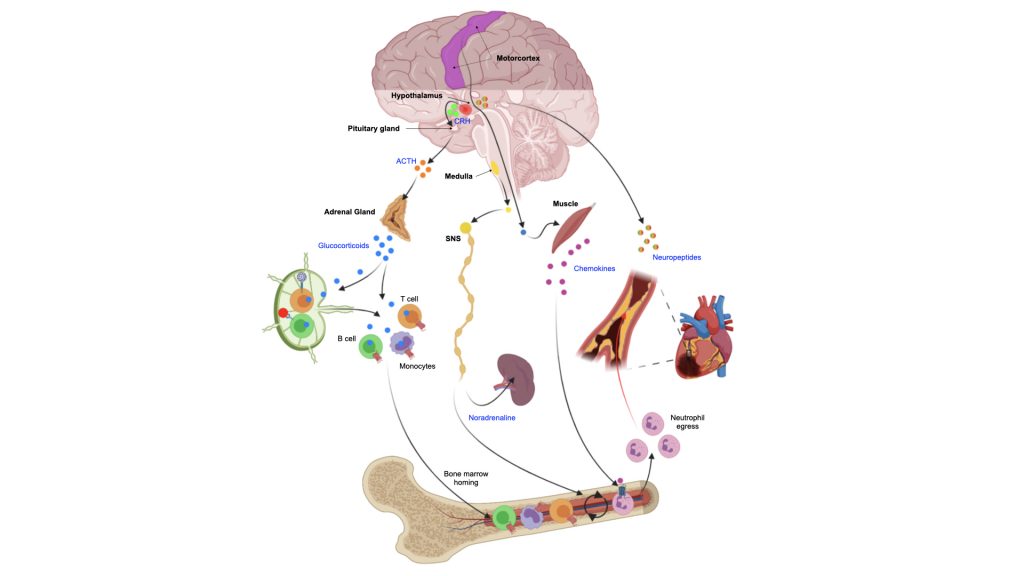It is becoming increasingly clear that psychosocial stress has major effects on cardiovascular health. In addition to the common perception that chronic stress is detrimental to health, there is growing clinical and scientific evidence supporting the idea that stress can aggravate cardiovascular disease (CVD) and impair responses to therapies. In recent years, studies have started to analyze the molecular mechanisms linking stress with various organ systems. How specific arms of the central nervous system (CNS) might control immune cells has previously been surmised by manipulating intermediate conduits, but there has been scant attention to how specific brain regions and their resident nuclei regulate processes relevant to atherosclerosis progression and regression. We have generated and implemented sophisticated new tools including viral tracing, optogenetics, chemogenetics, and brain region-specific knockout mice, as well as cell type-specific glucocorticoid receptor knockout mice to explore how stress shapes the course of cardiovascular disease, including responsiveness to common therapies. Specifically, we are focusing on identifying communication nodes that link distinct brain regions with the vessel wall during the progression of cardiovascular disease. Key questions include: What specific brain regions regulate leukocytes in response to acute stress? How does the CNS influence the progression of atherosclerosis during stress? What are the long-term cardiovascular consequences of acute stress?

